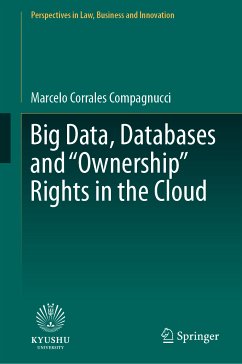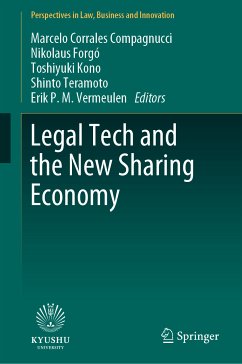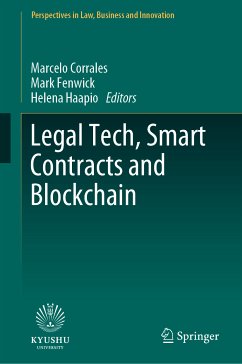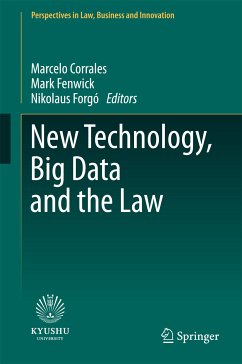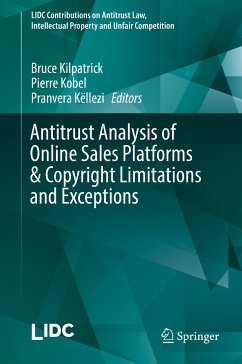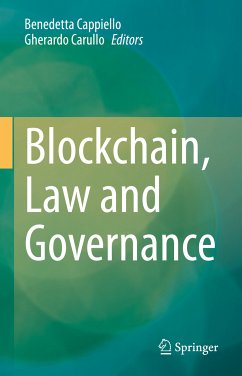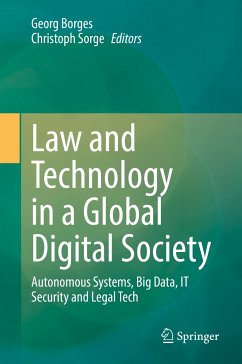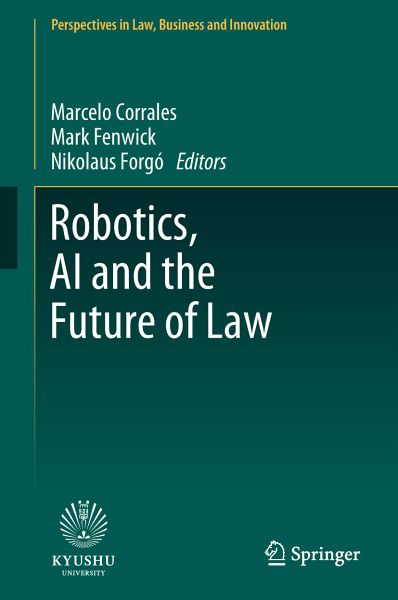
Robotics, AI and the Future of Law (eBook, PDF)
Versandkostenfrei!
Sofort per Download lieferbar
120,95 €
inkl. MwSt.
Weitere Ausgaben:

PAYBACK Punkte
60 °P sammeln!
Artificial intelligence and related technologies are changing both the law and the legal profession. In particular, technological advances in fields ranging from machine learning to more advanced robots, including sensors, virtual realities, algorithms, bots, drones, self-driving cars, and more sophisticated "human-like" robots are creating new and previously unimagined challenges for regulators. These advances also give rise to new opportunities for legal professionals to make efficiency gains in the delivery of legal services. With the exponential growth of such technologies, radical disrupt...
Artificial intelligence and related technologies are changing both the law and the legal profession. In particular, technological advances in fields ranging from machine learning to more advanced robots, including sensors, virtual realities, algorithms, bots, drones, self-driving cars, and more sophisticated "human-like" robots are creating new and previously unimagined challenges for regulators. These advances also give rise to new opportunities for legal professionals to make efficiency gains in the delivery of legal services. With the exponential growth of such technologies, radical disruption seems likely to accelerate in the near future.
This collection brings together a series of contributions by leading scholars in the newly emerging field of artificial intelligence, robotics, and the law. The aim of the book is to enrich legal debates on the social meaning and impact of this type of technology.
The distinctive feature of the contributions presented in this edition is that they address the impact of these technological developments in a number of different fields of law and from the perspective of diverse jurisdictions. Moreover, the authors utilize insights from multiple related disciplines, in particular social theory and philosophy, in order to better understand and address the legal challenges created by AI. Therefore, the book will contribute to interdisciplinary debates on disruptive new AI technologies and the law.
This collection brings together a series of contributions by leading scholars in the newly emerging field of artificial intelligence, robotics, and the law. The aim of the book is to enrich legal debates on the social meaning and impact of this type of technology.
The distinctive feature of the contributions presented in this edition is that they address the impact of these technological developments in a number of different fields of law and from the perspective of diverse jurisdictions. Moreover, the authors utilize insights from multiple related disciplines, in particular social theory and philosophy, in order to better understand and address the legal challenges created by AI. Therefore, the book will contribute to interdisciplinary debates on disruptive new AI technologies and the law.
Dieser Download kann aus rechtlichen Gründen nur mit Rechnungsadresse in A, B, BG, CY, CZ, D, DK, EW, E, FIN, F, GR, HR, H, IRL, I, LT, L, LR, M, NL, PL, P, R, S, SLO, SK ausgeliefert werden.



